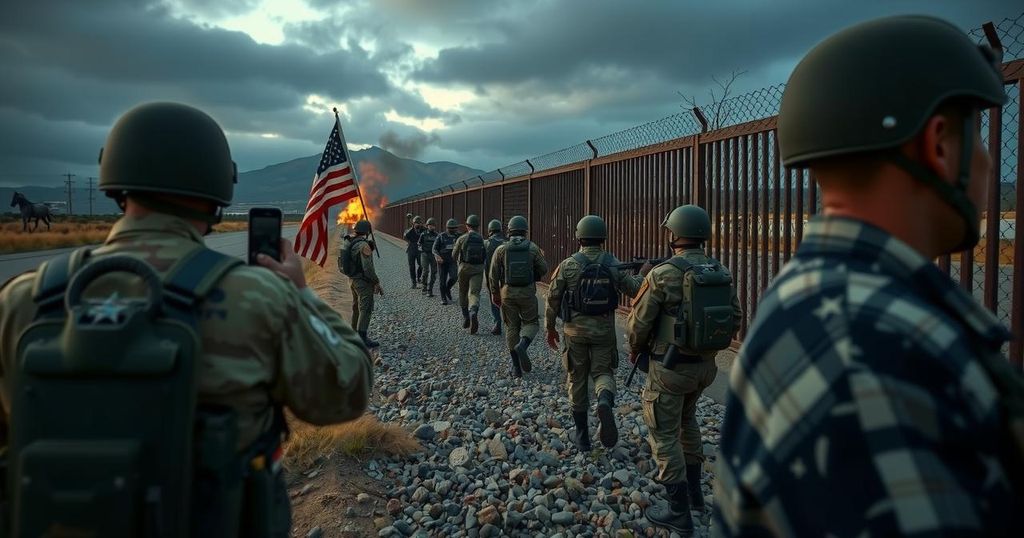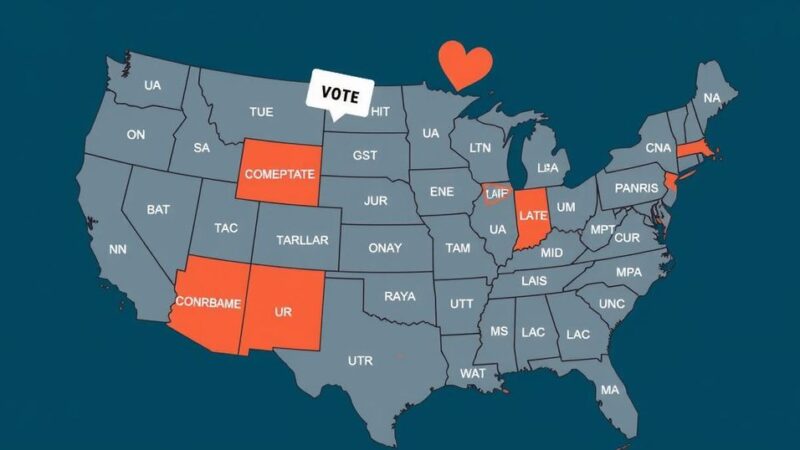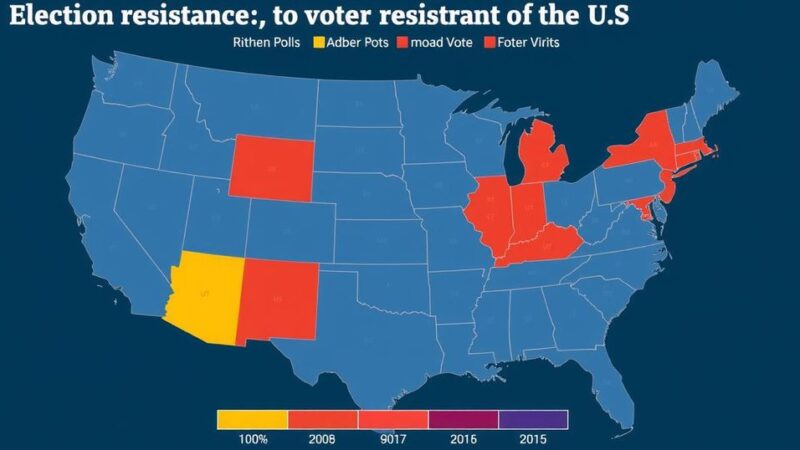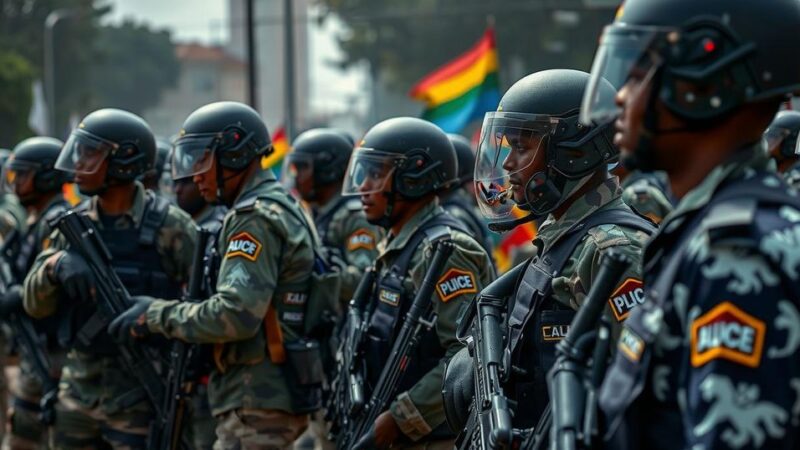Mexico’s National Guard fatally shot two Colombians and injured four others near the U.S. border after a confrontation with suspicious vehicles. The incident raises questions about the status of the victims as migrants and the militarized approach to law enforcement, particularly concerning human rights risks. Colombia has responded by seeking clarification and justice for the victims, with potential implications for diplomatic relations.
In a grave incident near the U.S. border, Mexico’s National Guard engaged in a confrontation that resulted in the fatalities of two Colombian nationals and injuries to four others. This altercation took place on a secluded road near Tecate, California, wherein a patrol came under gunfire after encountering two suspicious vehicles. One truck evaded capture, while the other was targeted by the guardsmen, leading to the tragic loss of life and injuries, the details of which remain murky. Mexican authorities confirmed that the condition of the injured victims is unclear, and there were no reported casualties among the National Guard personnel. Additionally, two individuals, one Colombian and one Mexican, were discovered unharmed and detained at the location. A pistol and several ammunition magazines typically associated with assault rifles were also recovered from the scene. The circumstances surrounding the identities of the injured parties have sparked conflicting reports, notably regarding their status as migrants. Compounding the issue is the involvement of Colombians in Mexican cartel activities, where they are often recruited as enforcers for drug trafficking networks, which also engage in human smuggling. Notably, the Mexican government handed an uninjured Colombian individual over to immigration authorities, and the Foreign Relations Department promptly contacted the Colombian consulate, indicating a possible migrant status rather than cartel affiliation. Incidents such as these have raised concerns about the militarization of border enforcement in Mexico, especially after an earlier shooting in Chiapas resulted in the deaths of six migrants, including minors. Critics argue the military’s involvement in civilian law enforcement is problematic, asserting that the National Guard lacks the appropriate training for such duties. Colombia’s official response has been restrained, seeking clarification and justice for the victims while classifying them as migrants caught in crossfire. The ramifications of this incident could adversely affect Colombia-Mexico relations, highlighting the perilous voyages undertaken by migrants as they traverse through violent territories toward the United States.
The Mexican National Guard has been increasingly involved in law enforcement, particularly regarding migration and cartel activities. This militarization stems from the previous administration’s policies aimed at combating organized crime while ensuring border security. However, rising incidents of violence between law enforcement and civilian populations—especially migrants—have raised alarms about the safety and welfare of these vulnerable groups. The involvement of Colombians in these scenarios has become more pronounced due to their recruitment by drug cartels, making the region perilous for both migrants and law enforcement personnel alike. This backdrop frames the recent incident as part of a larger narrative involving violence at the border as Mexico grapples with its shifting approach to law enforcement and crime control.
The confrontation involving Mexico’s National Guard and the Colombian nationals underscores the complexities and dangers faced by migrants at the border. The lethal outcome raises urgent concerns regarding the actions and accountability of law enforcement in the context of migration. With potential implications for diplomatic relations between Colombia and Mexico, this incident calls attention to the broader issues of militarization and the protection of vulnerable populations in conflict-prone areas.
Original Source: www.newsweek.com






